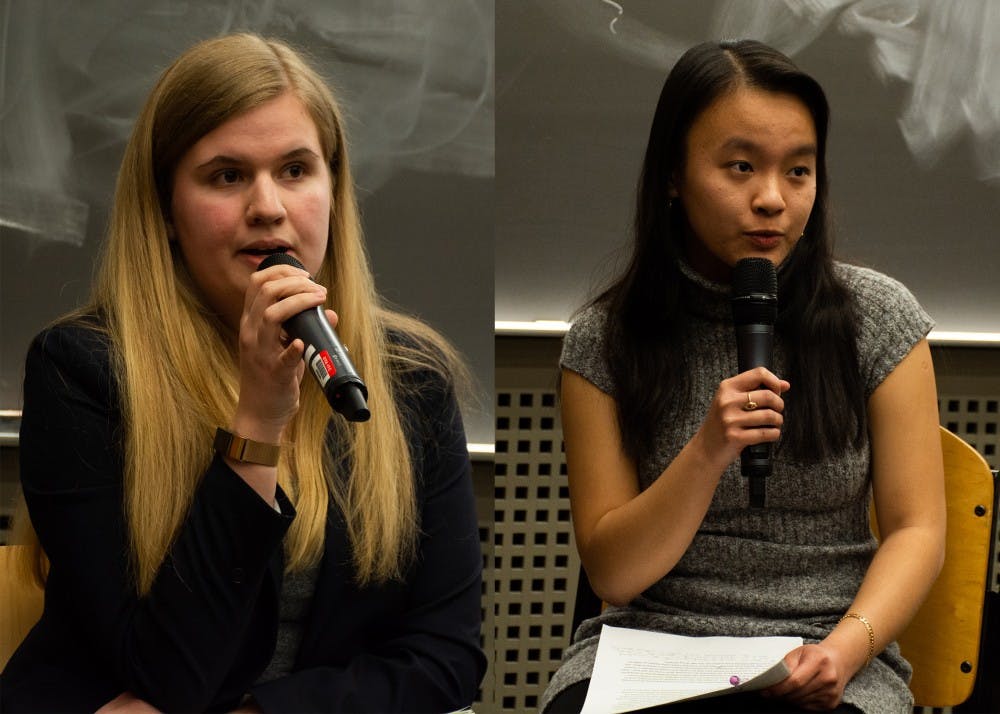The University Board of Elections released its 2019 Candidate Interim Expenditure Report Friday. The estimated total that will be spent by the 100 candidates for the 2019 election is $1492.66, which is 55 percent of the $2690 candidates actually spent last year on elections. Voting for Student Council elections will take place online from Feb. 26 to March 1.
“[A decrease in total projected] might be a possibility because the elections have not been as highly contested this year as they have in the past few years,” Alex Smith-Scales, fourth-year College student and UBE chair, said in an interview with The Cavalier Daily. “Additionally a lot of campaign materials are moving to be primarily — if not all — digital. They can create one graphic and post it on Facebook and buy a boost rather than printing out fliers.”
The average projected expense is $15.39 per candidate, though 86 students running for positions such as Architecture Student Council Treasurer, Engineering Student Council Representative and Nursing School Council President project to spend no money on their campaign.
For Student Council’s presidential election, first-year Curry student Arabella Lee projected a budget totalling $90. She indicated that an additional $10 will come from her personal budget and that at this time she has not received any donations.
Another presidential candidate — third-year College student Ellie Brasacchio — projected a total budget of approximately $52. Though she indicated she has not accepted donations, she did not specify where the funds will come from as she estimates $0 will be from her personal budget.
Brasacchio is campaigning with Shefalika Prasad — second-year College student and candidate for Student Council Vice President for Organizations — as well as Taylor Overton — third-year Batten student and candidate for Student Council Vice President for Administration. All three candidates are expected to spend approximately $52 each for their combined effort, and none indicated that they will be using donations.
First-year College Student Zach Steele is campaigning for second-year vice president and has projected to spend $200 — the most of all candidates. He estimates that $100 will come from personal funds and that he also will not be accepting donations. He did not indicate what he will spend his funds on.
Only two students indicated on the interim report that campaign funds had been donated to them, and both reported that the donations were from UBE. Second-year College student Matthew Foreman received a $20 grant for his Student Council College of Arts & Sciences Representative campaign and third-year McIntire student John Grencer received $50 grant to which he will reimburse to UBE for his Commerce Council President campaign.
In order to receive a grant, students were required to have filled out a form detailing how much money they were requesting and for what purposes by Feb. 1. The process of receiving grants from the UBE and donors was ongoing during the time in which the interim expenditure report was due so the statistics available reflect the candidate’s preliminary estimates. A final expenditure report will be available to the public March 8.
“I applied for the UBE grant program, and I got approved for the full $90,” Lee said in an interview with The Cavalier Daily. “I don’t really plan to accept donations ... I don’t want money to be a factor of my campaign. I want it to be focused on my platform instead.”
Last year, 13 endorsing student organizations signed a petition to limit candidate spending to less than $250 for students running for the presidential position. These organizations included the Black Student Alliance, University Democrats and College Republicans, who all pledged to not endorse a candidate who spent over the limit during the campaigning period.
This came after the 2017 Student Council election in which Student Council presidential candidate Kelsey Kilgore initially estimated she would $2490 on her campaign. That year, candidates indicated that they would collectively spend approximately $6800, which more than doubled the previous year’s total of almost $3000. A final expenditure report for all candidates indicated that only $3343.64 was spent in 2017.
No organizations have expressed concern over campaign expenditures this year. As with previous year, the UBE will not impose a limit on candidates’ spending as it infringes on free speech laws.
“Since U.Va. is a state school and given the way that students self govern, since UBE is a special status organization, we are technically doing a service for the University and acting as agents of the state,” Smith-Scales said. “Spending limits would be a free speech violation, so we cannot impose any spending limits.”







